Steph W. from SEOPressor


...help you check your website and tell you exactly how to rank higher?


90
score %
SEO Score

Found us from search engine?
We rank high, you can too.
SEOPressor helps you to optimize your on-page SEO for higher & improved search ranking.
By vivian on September 12, 2019
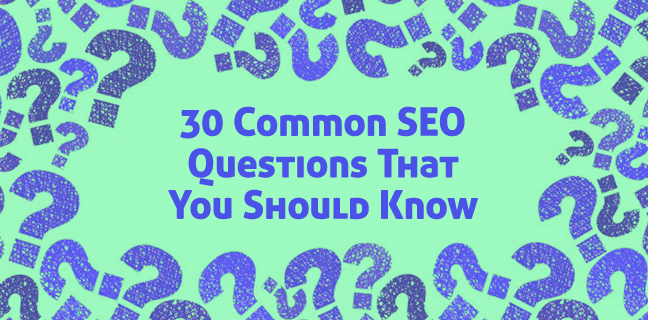
I remember when I was first introduced to SEO, besides knowing that it’s something about getting higher rankings on search engines, I had almost zero knowledge about it and had to learn up everything as quickly as possible.
Problem was, SEO is a wide-ranging subject that you can’t really master from studying a textbook. SEO is evolving all the time and books could hardly keep up with it, what works this month could be obsolete the next. There is no definite formula to get your website to the first page of search engines. But you are lucky if you found the right strategy or great SEO tool that can help you to achieve it.
The best way to learn SEO is by following and reading the blogs of SEO experts who have done numerous case studies and experiments to figure out how Google scores a website. But even then it could be misleading because there are many self-proclaimed “SEO experts” out there with some biased opinions.

A: SEO is short for Search Engine Optimization. It is the systematic process of improving the position that your website appears in the search engine result page (SERP), such as Bing, Yahoo, and Google in order to obtain organic search traffic.
Each of the search engines shows and ranks a variety of media including web pages, videos, whitepapers, articles, blogs, based on what the search engine considers to be most relevant to users’ search. Theoretically, the higher your site appears in the SERP, the more traffic you drive to your website, which leads to more business.
[Tweet “SEO is the systematic process of improving your ranking on search engines. 30 #SEO FAQ u shd know:”]
A: SEO can help you or your business by giving your web pages higher ranking in the search engine results. You benefit from a stronger digital presence on the web, which can lead to more traffic, quality leads, and more customers.
[Tweet “SEO can improve page ranking & lead to more traffic. 30 #SEO FAQ u shd know:”]
A: SEO is not illegal, but black hat SEO practices such as filling your web pages with keywords that are visible to search engines but not visible to the reader can get your site banned or penalized by search engines.
Black hat SEO practices used to work a few years back, but Google is quick in identifying these tactics and has come up with new algorithms to kick these practices out. So even if you can find a new loophole in Google’s algorithm, you can be sure that it won’t work for long before Google counter it.
[Tweet “SEO is legal as well as ethical. 30 #SEO FAQ u should know:”]
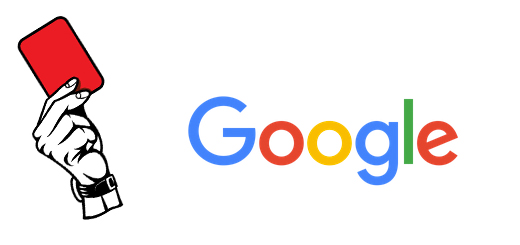
A: No, this is a common SEO myth that many believed. Search engines like Google have the primary goal to return the most relevant content for any given search query to help searchers find the best websites.
Google and other search engines want website owners to perform SEO and help users find their content, but you must know the rules and follow them. If you break the rules, the search engines reserve the right to remove your website from the index, which makes your website difficult to find and decrease your overall rankings.
To put it briefly, Google rewards website that performs good SEO practices and only penalizes website that performs black hat SEO tactics.
[Tweet “Google rewards good SEO practices and penalizes black hat #SEO tactics. 30 SEO FAQ u should know:”]
A: Black hat SEO tactics attempt to bypass the time and effort it takes to optimize a website by using tactics designed to boost the website’s search engine results artificially.

Tactics may include the creation of widgets and embedding them in links, stuffing web pages with invisible keywords, or using a Private Blog Network to build external links from these microsites to the main website.
Read more on black hat SEO tactics here.
[Tweet “Invisible keywords and link farming are black hat SEO tactics. 30 SEO FAQ u should know:”]
A: SEO is a carefully thought-out systematic strategy that starts all the way from the selection of your domain name to the loading time of your webpage. There are many factors that affect your ranking and doing SEO means optimizing as many of these factors as you can to get the best score possible.
Factors such as keyword density, LSI keywords, placement of keywords, keyword decoration, page load time, user dwell time, freshness score, social signals, click-through rate, number of backlinks, quality of backlinks, mobile-friendliness, and etc are all taken into consideration.
The image below illustrates well the process of SEO:
[Tweet “SEO is a carefully thought-out systematic strategy. 30 SEO FAQ u should know:”]
A: SEO is not a one-time effort, most SEO experts would recommend it as a long-term marketing strategy. Website owners will need to keep track of their websites and it’s ranking all the time.
With so many changing parts, such as link degradation, evolving search engine algorithms, outdated content, and competition from other companies in your industry, SEO requires an ongoing commitment. Despite that, SEO offers a better ROI than most traditional marketing.
[Tweet “SEO is not a one-time effort. 30 SEO FAQ u should know:”]
[bof_display_offer id=7917]
A: Not necessary. Although it is the best and fastest way to get visible results, SEO agencies can be quite costly for smaller businesses. When it comes to spending money on services, it all comes down to ROI, if hiring an SEO agency can increase more profit for your business to cover the hiring fees, then go ahead and hire one.
But if you can’t afford the fees of an SEO agency, there are many cheaper alternatives that work as well. The best alternative would be none other than BiQ Cloud.
BiQ is an SEO suite that revolutionizes the SEO tool pricing structure where you pay only for what you use.
For example, if you are only using the keyword research features, you only need to pay for the keyword searches and not for other features.
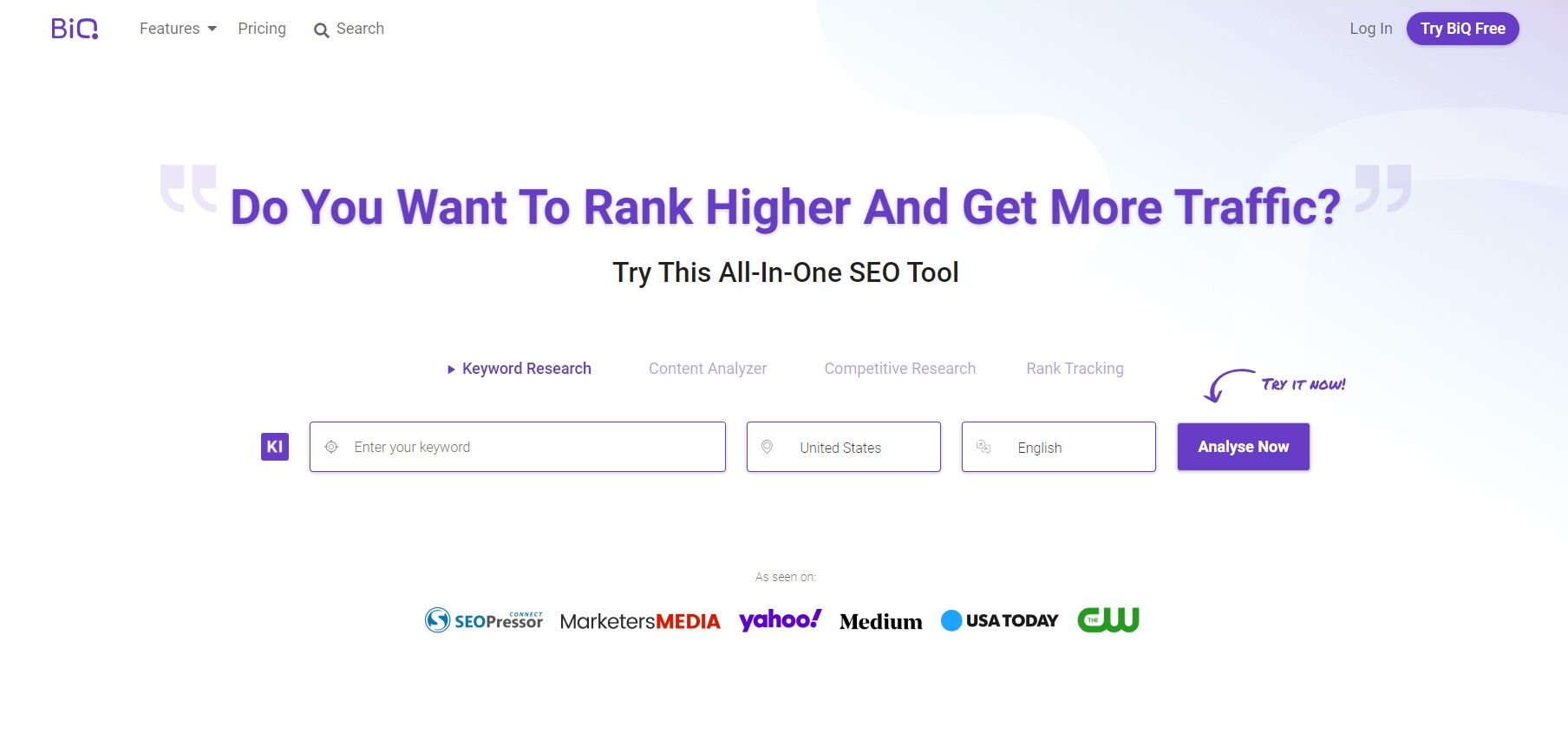
The best part? You can start using BiQ Cloud for free, and pay as you go only when you exceed the free tier limit. Get your free access to BiQ Cloud today!
[Tweet “There are cheaper alternatives to hiring SEO agencies, BiQ is one. 30 SEO FAQ u should know:”]
A: The quality of your URL structure does have an effect on page ranking and SEO efforts. URLs must be short, easy to read and identify at a glance where the user is going. The page title has to be concise and support the contention of the page. A Quicksprout study shows that URLs that contains 35 to 40 characters dominated the search listings.
Read more about URL structure here.
[Tweet “URL structure does affect SEO. 30 SEO FAQ u should know:”]
A: Google Analytics is the most popular tool used to obtain basic statistics and monitor traffic to your web site. The best part of it is that it is also free.
Another great tool for tracking your SEO efforts is Rank Tracking by BiQ. BiQ offers a rank tracking feature that can help fill in the time lag or missing data you would otherwise see in your Google Search Console.
With BiQ’s Rank Tracking, all it takes is to create a rank tracking profile for your website and you can keep track of your keyword’s daily rankings and its historical data since the day it’s added.
Quickly identify your keywords’ gains or losses so you can act in response to secure your keyword rankings from being stolen by a competitor or take the chance to further boost your keyword rankings while it’s in trend.
BiQ’s Rank Tracking also allows you to sort your keyword rankings by pages, so you can see how your overall page ranking has changed over time.
In addition to the multiple keyword rankings movement for the page. Be the first to know when something critical happens.

Try Rank Tracking for free here!
[Tweet “Google Analytics and Rank Tracking by BiQ are great to track your SEO efforts. 30 SEO FAQ u should know:”]
A: Google Analytics is a free analytics service provided by Google that tracks and reports statistics for website traffic.
These statistics include your readers’ location, unique page view and, average time on page.
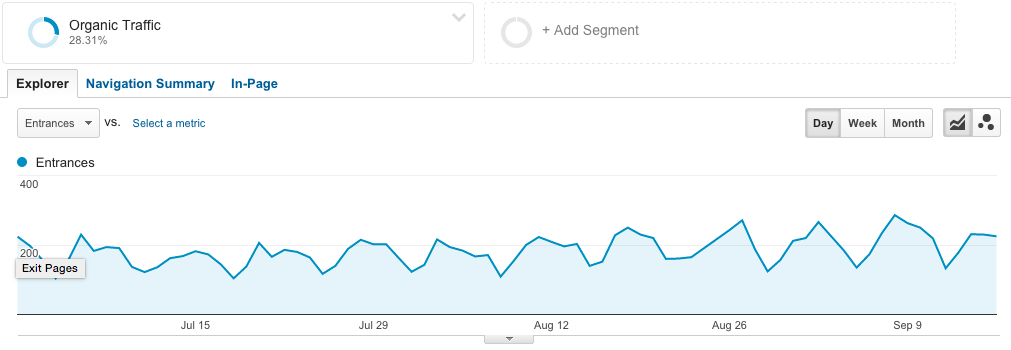
[Tweet “Google Analytics is a service that tracks and reports stats for web traffic. 30 SEO FAQ u should know:”]
Read more on Google Analytics here.
A: If done correctly, immediately as long as you request Google to recrawl/reindex your webpage.
But as mentioned above, page rank is affected by many factors, including factors that you can’t control, such as the number of backlinks, quality of backlinks, freshness score, age of your website, competition for keywords, and etc. These factors can’t really be controlled by you or anyone else but time.
So if your webpage hasn’t improved in rankings after all your SEO efforts, have some patience and continue producing more great content and you’ll see the fruits of your SEO efforts within months.
[Tweet “If done correctly, you’ll see the results of your SEO efforts immediately. 30 SEO FAQ u should know:”]
A: Google allows website owners to submit their websites free. The most common way Google employs to find a website is through its Googlebot. Also known as a bot, robot, spider, or web crawler, this program tool constantly crawl the Internet to detect new and updated pages to add to its index. It also notes dead links.
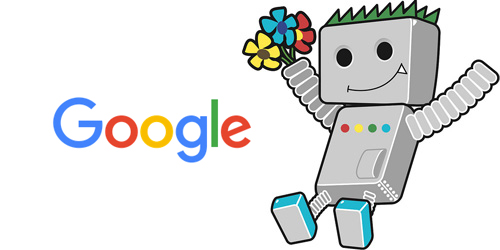
[Tweet “Google uses Googlebot to find a website. 30 SEO FAQ u should know:”]
A: When a search engine crawlers and spider visit your website, the first thing the bot seeks out is the robot.txt file. The robot.txt file defines how Googlebot and other crawlers should interact with the pages and files contained on your website. If you have directories and files that you do not want the search engines to index, you simply use a robot.txt file to define where the crawler should not go.
[Tweet “You can use a robot.txt file to tell Googlebot not to crawl your website. 30 SEO FAQ u should know:”]
Read more on robot.txt here.
A: Meta tags refer to snippets of text or “metadata,” which provides a description of a webpage’s content. Meta tags include the title tag, meta description, and keywords of a page.
Meta tags do not appear on the page itself, but within the HTML code, which is only visible to search engines.
Read our case study on meta description here.
[Tweet “Meta tags refer to snippets of text which provides a description of a webpage’s content. 30 SEO FAQ u should know:”]
A: According to some SEO experts, meta tags do not matter as much since Google discontinue using the tags in its page rankings. However, meta tags continue to provide important information to inform search engines and users about the web page.
By providing additional information about your website, it may improve the click-through rate and that has a say in improving a page’s ranking. So, meta tags are still important for SEO, even if it is an indirect factor.
[Tweet “Meta tags are still important for SEO, even if it’s an indirect factor. 30 SEO FAQ u should know:”]
A: In the way you use a robot.txt file to control the directories and files you want the bots to bypass, you also want to have some control over the content and URLs that are indexed by the search engines.
In the past, webmasters relied on an HTML sitemap. Each primary page on the website would contain a link to the sitemap in the footer. An Extensible Markup Language or XML sitemap allows site administrators to direct search engines to information on the pages of a website they want to be indexed.
XML sitemaps also provide the priority or hierarchy of site content as well as information on the last update for the particular page.

[Tweet “An XML sitemap provides info on the last update for a page. 30 SEO FAQ u should know:”]
A: A 301 redirect is a permanent redirection from one URL to another URL. When you move your website to a new address, you want to ensure that users who click on the link to your old site are forwarded and that all of your inbound links point to you new website.
[Tweet “A 301 redirect is a permanent redirection from one URL to another URL. 30 SEO FAQ u should know:”]
A: For different reasons, webpages have many different version of URLs that leads to the same page. For example: www.example.com and http://www.example.com/ are different URLs that lead users to the same page.
While humans don’t see a problem with this, search engines see it differently. The first problem with this is that the search engine sees this as a case of duplicate content and may penalize your website. Secondly, all your traffic is divided and poured into different versions of URL, and since Google takes unique pageviews as a factor in ranking a page, you don’t want that to happen.
Canonical links solve all of these issues. Canonical links function as a soft redirect, but without redirecting the user. It tells browsers to direct the users to the one version of the URL that you have assigned.
To know more about canonical links and when to use them, read here.
[Tweet “Canonical link direct users to only one version of the URL of your webpage. 30 SEO FAQ u should know:”]
A: Yes and no. Ever since Google’s algorithm change, Google has taken into consideration the mobile-friendliness of a webpage in page ranking. But this only applies to search done on mobile-devices and do not affect the search rankings on desktop or laptops.
However, with the increasing number of mobile users, it is only wise to optimize your website for mobile devices.
Learn how to optimize your website with 10 easy ways here.
[Tweet “With an increasing number of mobile users, it’s wise to optimize your website for mobile. 30 SEO FAQ u should know:”]
A: The Google Knowledge Graph is a system of information that Google provides in order to enhance the queries of users. It is not based on providing users with more quality links. Instead, it’s meant to provide facts and answers to questions that users have searched for.
When you do a search, most of the time a list of organic results will show up. Every once in a while, you’ll see a box containing facts and information above the list of results.
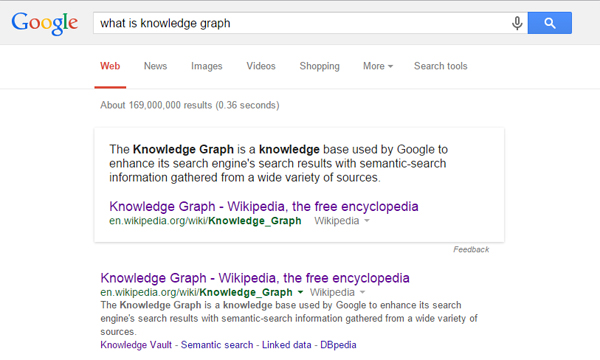
Read more on Google Knowledge Graph here.
Now, here’s a tip on how you can find Google Knowledge Graph opportunity with just a few clicks.
Enter your website URL on the Rank Intelligence, and you will be presented with all the SERP features you could be ranking.

Other than that, you will also be able to know the position of your ranking keywords.

Those pages that are already ranking on the first page usually have a higher chance of being featured in the knowledge graphs. So, if your page is already ranking on the first page and has SERP features opportunities, start optimizing your content and grab the spot!
Try Rank Intelligence for free here!
[Tweet “The Google Knowledge Graph is a system of info that Google provides in order to enhance users’ queries. 30 SEO FAQ u should know:”]
A: Google gets its information for Knowledge Graph from sources like CIA World Factbook and other large data websites, so it can be a little challenging to control what information is presented about your company.
While you can’t completely control what Knowledge Panel will present about your company, you can influence it by doing certain things such as using schema on your website, creating a Wikipedia entry for your company, and creating a Google+ page for your company.
[Tweet “Google gets its info for Knowledge Graph from large data websites. 30 SEO FAQ u should know:”]
Read more about Google Knowledge Panel here.
A: Recent research shows that article length does have an impact on SEO. According to serpIQ, its research on the top 10 results for any keyword revealed that the articles contained a minimum of 2000 words. One reason why longer content fared better is people preferred to link to contents that are more in-depth.
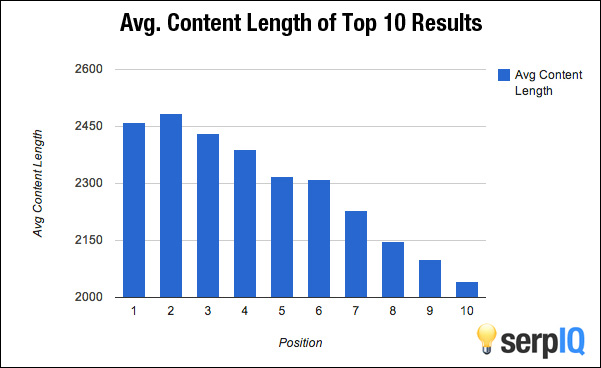
[Tweet “The top 10 results for any keyword contained a minimum of 2000 words. 30 SEO FAQ u should know:”]
A: Yes, social media has become an integral part of SEO. Websites that create high-quality shareable content tend to receive more shares and tweets on Social media sites, which leads to backlinks that are more natural.
Search engines see this as a sign of quality content and pay close attention to the volume of these social signals. If you’re already using social media, learn some tips to grow your business here.
[Tweet “Search engines see social signals as a sign of quality content. 30 SEO FAQ u should know:”]
A: Knowing how to code can be an incredibly useful skill when conducting SEO on your website, but it is not essential.
More importantly, you need to understand the SEO principles behind what makes your website work and how search engines react to certain changes.
[Tweet “You don’t need to know how to code to do SEO. 30 SEO FAQ u should know:”]
A: Go to “Index Status” in Google Webmaster Tools to find out how many pages have been indexed by Google as well as blocked pages and pages removed.
Another simpler way of doing this is to search your site on Google by typing:– site:yoursite.com. Google will show you the number of results returned.
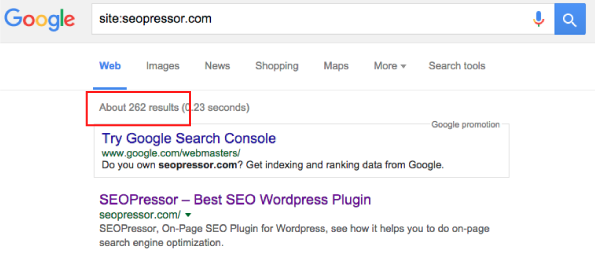
[Tweet “Find out how many pages have been indexed by Google with Webmaster Tools. 30 SEO FAQ u should know:”]
A: Alt text provides a description of an image file when a person hovers over the image, or for visitors who cannot see the images on their browsers. Alt text also allows the images to rank in image search results.
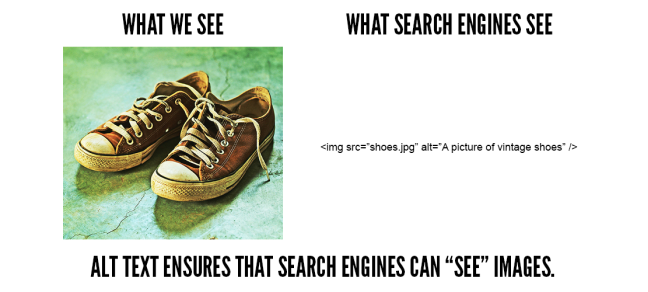
[Tweet “Alt text allows your images to rank in image search results. 30 SEO FAQ u should know:”]
A: Backlinks, which refers to links that are directed towards your website from other domains. It provides the search engines a view of the importance or popularity of your website. We can also interpret these links as a “vote of confidence”.
Backlinks are one of the primary building blocks of any SEO campaign and can help your website gain traction, attention and natural traffic from the search engines.
Google will give more credit to websites with quality backlinks because they consider such websites more relevant than other results for a particular query and keyword.
Read more on backlinks here.
[Tweet “Backlinks are links directed to your website from external sources. 30 SEO FAQ u should know:”]
A: You can buy backlinks, which may help to boost your rankings temporarily. However, for the record, Google states that it does not want to count any link that is not editorial – or freely given. Google will eventually ignore these links and reward websites based on the quality of the links pointed at your site.
[Tweet “Buying backlinks to boost ranking may only work temporarily. 30 SEO FAQ u should know:”]
A: Internal links move from one page on a domain to another page of the same domain. It helps to establish your website’s architecture.
External links, also known as, outbound links, move from one page on a domain to one page of another domain. In short, you’re linking out and bringing your readers to other pages.
Inbound links refer to backlinks that are directed to your website from other websites.
Read more on the types of links here.
[Tweet “Internal links are links that go from page to page within the same domain. 30 SEO FAQ u should know:”]
[This blog post was first written and published by Zhi Yuan on Sep 15, 2015. It is most recently updated by Winnie on December 8, 2020]
Updated: 28 February 2026


Save thousands of dollars (it’s 100x cheaper)

Zero risk of Google penalty (it’s Google-approved)

Boost your rankings (proven by case studies)
Rank High With This Link Strategy
Precise, Simplified, Fast Internal Linking.
